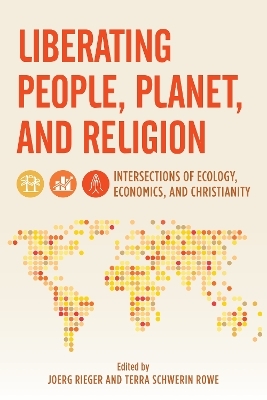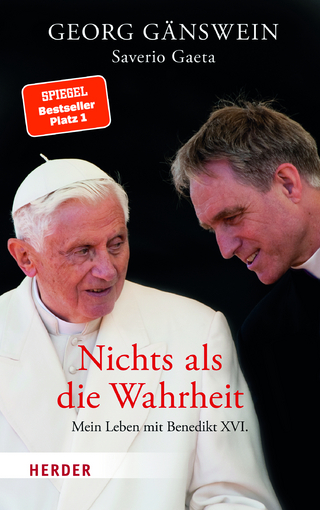
Liberating People, Planet, and Religion
Rowman & Littlefield (Verlag)
978-1-5381-9402-7 (ISBN)
There is growing consensus that life on the planet is in peril if climate change continues at its current pace. At stake is not only the future of many species but of humanity itself. As an increasing number of ecological economists have emphasized, these problems will only be adequately addressed by re-examining economic systems from an ecological perspective, fundamentally calling into question assumptions of unlimited growth and the maximization of shareholder profit foundational to neoliberal capitalism. Religion and ecology scholars have also increasingly emphasized the ways climate change challenges assumed divides between nature and culture, religion and labor, economy and ecology, and calls for critical and constructive engagement with the religion, economy, and ecology nexus.
Often, though, religious engagements with economy and ecology have placed emphasis on individual morality, action, and agency at the level of consumption patterns or have suggested mere modifications within existing economic paradigms. Contributors to this volume call into question the adequacy of this approach in light of the urgency of climate change which is always ever entwined with ongoing patterns of exploitation, oppression, and colonialism in current economic systems. Rather than tweaking a system of exploitation, for instance by emphasizing individual consumption or care for human and non-human victims, these authors articulate important opportunities for religious engagement, activism, resistance, and solidarity around issues of production and labor. Recalling that Marx linked agencies and labor of people as well as the other-than-human world, these authors aim to articulate a sense in which liberation of people and the planet are intertwined and can be accomplished only through collaboration for their common good.
The basic intuition driving this volume is that while Christianity has by and large become the handmaiden of exploitative capitalism and empire, it might also reclaim latent theologies and religious practices that call into question the fundamental valuation of labor without recognition or rest, of extractive exploitation, and a “winner take all” praxis. In the process, Christianity might reclaim and reinvest in tenuous historical materializations of transformed ecological and economic relationships while economics might be re-informed by a valuation of the shared oikos as well as a just accounting of and renumeration for labor. Together they might serve the aim of the flourishing of all people and the planet.
Joerg Rieger is Distinguished Professor of Theology and holds the Cal Turner Chancellor's Chair in Wesleyan Studies in the Divinity School and the Graduate Program of Religion at Vanderbilt University. He is also the Founding Director of the Wendland-Cook Program in Religion and Justice at Vanderbilt. Previously, he was the Wendland-Cook Professor of Constructive Theology at Perkins School of Theology, SMU. For more than two decades Rieger has worked to bring together theology and the struggles for justice and liberation that mark our age. His work addresses the relation of theology to public life, using tools from cultural studies, critical theory, and religious studies, and reflecting on the misuse of power in religion, politics, and economics. His main interest is in movements and developments that bring about change and the positive contributions of religion. Known for his prolific and visionary writing, his books include Jesus vs. Caesar (2018), No Religion but Social Religion (2018), Unified We Are a Force (with Rosemarie Henkel-Rieger, 2016), Faith on the Road (2015), Religion, Theology, and Class (2013), Occupy Religion: Theology of the Multitude (with Kwok Pui-lan, 2012), Grace under Pressure (2011), Traveling (2011), Globalization and Theology (2010), No Rising Tide: Theology, Economics, and the Future (2009, Spanish transl.), Christ and Empire: From Paul to Postcolonial Times (2007, German and Portuguese transl.); Opting for the Margins: Postmodernity and Liberation in Christian Theology (ed., 2003); God and the Excluded: Visions and Blindspots in Contemporary Theology (2001); and Remember the Poor: The Challenge to Theology in the Twenty-First Century (1998, Portuguese transl.). He is co-author, with Brazilian theologian Jung Mo Sung and Argentinian theologian Nestor Miguez, of Beyond the Spirit of Empire: New Perspectives in Politics and Religion (2009). Rieger has lectured throughout the U.S., as well as internationally, including presentations in South Africa, Zimbabwe, Germany, Switzerland, Austria, the Netherlands, Belgium, England, Russia, Brazil, Argentina, Mexico, Costa Rica, Cambodia, the Philippines, Thailand, China, India, and Israel/Palestine. Terra Schwerin Rowe (PhD in Theological and Philosophical Studies, Drew University; STM, Lutheran Theological Seminary at Philadelphia; MA in Diaconal Ministry, Wartburg Theological Seminary) is Assistant Professor of Religion and Ecology at the University of North Texas. Her work--including Toward a Better Worldliness: Economy, Ecology, and the Protestant Tradition (Fortress, 2017), conference presentations, and journal articles--focuses on critical analyses and constructive reinterpretations of Protestant theologies from the perspective of feminist and environmental concerns.
| Erscheinungsdatum | 22.05.2024 |
|---|---|
| Reihe/Serie | Religion in the Modern World |
| Verlagsort | Lanham, MD |
| Sprache | englisch |
| Maße | 158 x 237 mm |
| Gewicht | 553 g |
| Themenwelt | Religion / Theologie ► Christentum ► Kirchengeschichte |
| ISBN-10 | 1-5381-9402-3 / 1538194023 |
| ISBN-13 | 978-1-5381-9402-7 / 9781538194027 |
| Zustand | Neuware |
| Haben Sie eine Frage zum Produkt? |
aus dem Bereich


